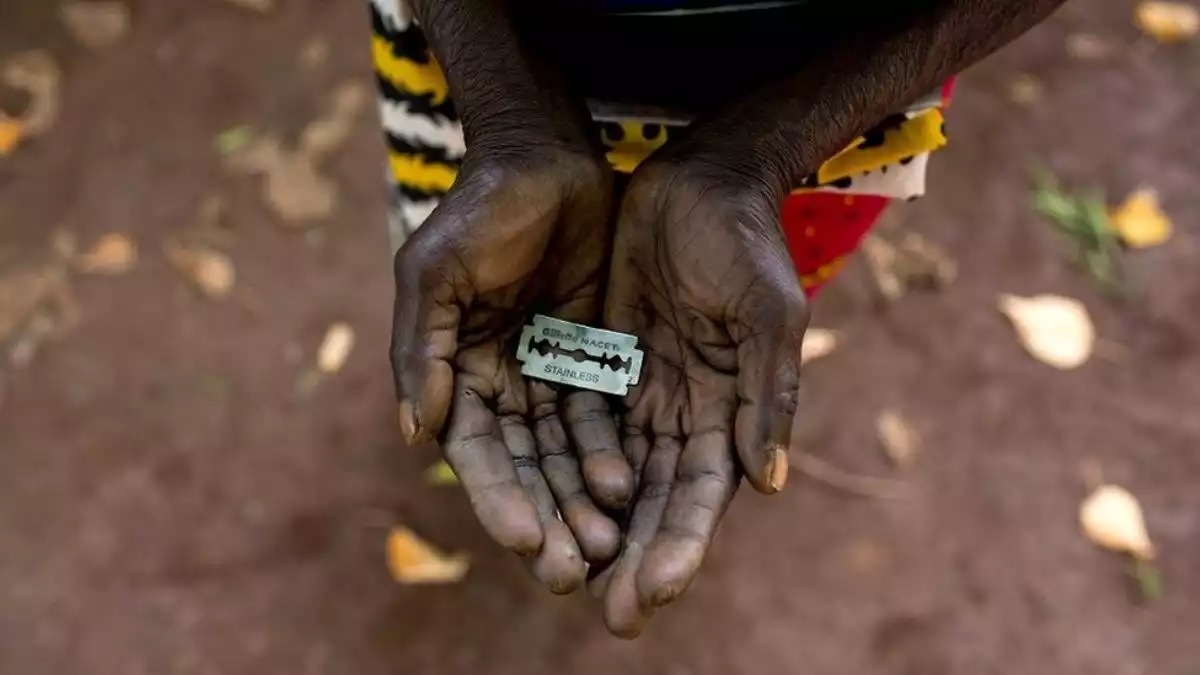RIO DE JANEIRO, BRAZIL – There has been an unprecedented ideological swerve in Brazilian diplomacy. The government of Jair Bolsonaro, which had already allied itself with ultraconservative countries like Saudi Arabia to veto the inclusion of the term “sex education” in a UN resolution on discrimination against women and girls, is now opposed to citing “sexual and reproductive health” in a text proposed by African countries to ban female genital mutilation.

Although the Brazilian government advocates fighting this scourge that affects some three million girls per year, the Itamaraty Foreign Office approach has been to call for the exclusion of any reference to women’s access to “sexual and reproductive health”. The new Brazilian representation fears that, in future, the expression will be used to justify abortion practices.
The texts’ authors deny any link with pregnancy termination and point out that, in the case of mutilation, such access may mean the difference between life and death for these women.
The Brazilian government’s position led to bafflement from foreign diplomats and was met with dismay by other delegations. In Brasília, at the Itamaraty headquarters, the guidelines given by the Foreign Ministry’s leaders also caused indignation among the federal capital’s officials. The conduct has also been isolating Brazil in Latin America, as Itamaraty is now perceived as backward by African countries, and as barbaric by European governments.
The government of Mexico’s leftist Andrés Manuel López Obrador, for one, has even proposed guaranteeing sexual health rights for these girls subjected to genital excision, in a direction diametrically opposed to what Brazilian diplomats have been suggesting.
The incident clouding the debate on the resolution against genital mutilation, scheduled to be put to a vote next week at the UN Human Rights Council, is far from unprecedented. The Brazilian government’s ultraconservative tendency has been pursued in several meetings and proposals under debate at the United Nations.
Itamaraty began to assume a position in its foreign policy where only biological sex exists, and there is no consensus on access to sexual and reproductive health. Terms such as “gender” and “identity” had also been challenged.
However, the surprise to other countries is that, in this case, all studies point to the specific relevance of sexual and reproductive health ]in the fight against genital mutilation, which is the deliberate cutting or removal of part of the external female genitalia: the labia and clitoris.
According to the W.H.O., 200 million girls and women live in countries that practice mutilation. Most of the victims are aged between below 15 and the practice is considered a human rights violation. Concentrated in African and Middle Eastern countries, it is estimated that mutilation could affect up to three million girls per year. The United Nations Health Agency explains that mutilation is “aimed at ensuring pre-marital virginity and marital fidelity”. “In many communities mutilation is believed to reduce a woman’s libido and therefore help prevent extramarital sexual practices,” the W.H.O. notes.
According to the agency and to specialists, women’s access to sexual and reproductive health, to which Brazil is opposed, is a key instrument in guaranteeing the rights of these girls. In a study conducted in 2017, the Liverpool School of Tropical Medicine noted that “increasing the sexual and reproductive health of women affected by mutilation will only be possible if decision makers make it a priority.” NGOs such as the International Planned Parenthood Federation (IPPF) advocate that access to sexual and reproductive health services be guaranteed to all women who undergo this practice.

Against sex education
The indignation with the Brazilian change in diplomacy had already surfaced recently. In a resolution proposing the fight against the discrimination of women, Itamaraty also raised its banner to say that it did not agree with the terms. In this case, the Brazilian veto was backed by ultraconservative governments and accused of violating women’s rights. The same position as Itamaraty was adopted by Saudi Arabia, Qatar, Bahrain, Iraq, and Pakistan. All other Western countries have already come out in support of the project, proposed by Mexico.
In the case of the resolution on discrimination, the disputed passage cites the guarantee of universal access to sex education. As in the other cases, the Bolsonaro government did not explain the reason for its position.
The project addresses issues such as the need to “eliminate all forms of discrimination against women and girls”. The goal is to strengthen the fight for gender equality as one of the targets for 2030. The text should also be put to a vote next week.
It is not the only change in the project requested by Brazil. Another passage that the government wants to see completely excluded would recognize that “the full range of sexual and reproductive health information and services includes family planning, safe and effective methods of modern contraception, emergency contraception, adolescent pregnancy prevention programs, and maternal health care, such as skilled birth care and emergency obstetric care, including midwives for maternity services, perinatal care, safe abortion where it is not against national law, post-abortion care, and prevention and treatment of reproductive tract infections, sexually transmitted infections, HIV and reproductive cancers.”
However, pressure from Islamic governments and Brazil did not persuade the project’s authors to accept its deletion from the draft project. In taking the floor, the government of Mexico stated that it would be “difficult” to exclude the entire paragraph and cautioned that removing the chapter on health and access to reproductive health would undermine the focus of the resolution, which is to fight discrimination suffered by women and girls.
The deadlock between the ultraconservative bloc and the remaining governments should lead to intense negotiations behind the scenes by next week. In another part of the project, the Brazilian government also called for the acknowledgment of the role of religious institutions in the creation of public policies for the defense of women and gender equality.
In another passage, Brazil backed Afghanistan and Nigeria by challenging a reference in the text to “other identity factors”. The Itamaraty positioning of closer ties with more conservative governments has been the target of controversy within the UN, which considered Brazil as one of the traditional allies in the progress of women’s rights.
The attitude of the Brazilian government has once again surprised human rights activists. “Brazil is once again an international embarrassment and consolidates itself in the group of countries that adopt the most retrograde stances in the discussions on gender at the United Nations,” said Camila Asano, program director of the NGO Conectas Human Rights. “The body’s position does not conform to the policies adopted in Brazil for years nor to the international commitments undertaken by the country in terms of gender and sexual and reproductive rights,” she said.
During the meeting last week to present its vetoes, the Brazilian representative took the floor and explained that such terms “create controversy”. The government also stressed that it “rejects the practice of abortion as a contraceptive method.” “Family planning is a matter of freedom of the couple and the State is responsible for providing resources to this right, free of coercion,” it added.
Source: El País

